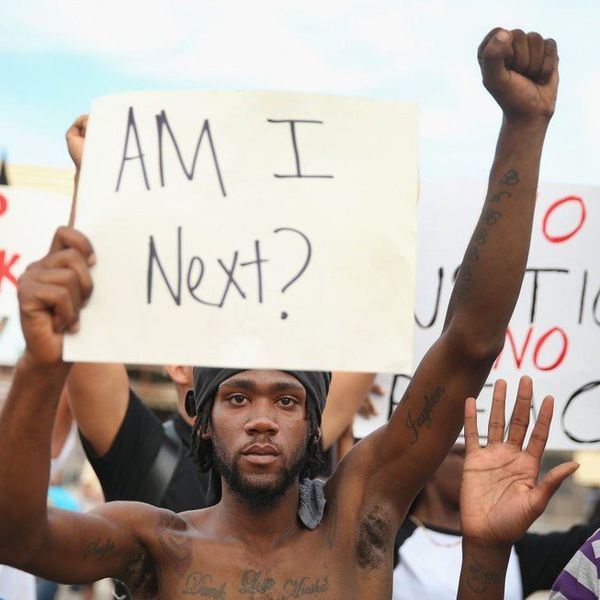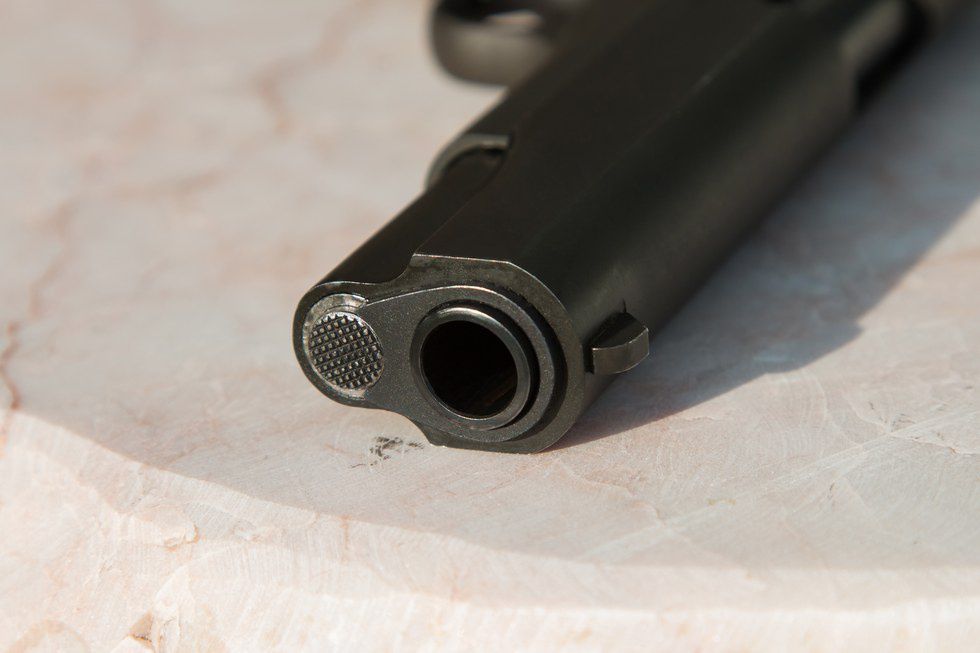Unless you've been living under a rock recently, you've heard all about and potentially even seen the horrific recent murders in our country of Alton Sterling, Philando Castile, and several Dallas Police Department members. Over the past few days, I've edited this post over and over again. I was trying to figure out a way to say what I wanted to without my voice getting lost in the screams of "What is happening to our country?"
This past week has been an emotional roller coaster for America. One of my first versions of this post was soaked in anger. I planned to write a post full of statistics about police brutality and the inherently disgusting numbers. I wanted to address it to all of the people I know who think race relations in the United States are a-OK. I threw out statistics from mappingpoliceviolence.org saying:
"Police killed 102 unarmed black people in 2015, nearly twice each week.
Unarmed black people were killed at 5x the rate of unarmed white people in 2015.
Fewer than 1 in 3 black people killed by police in America this year were suspected of a violent crime and allegedly armed.
A total of 1.152 people were killed by police in 2015. 30% of those people were black, while blacks only make up 13% of the US population."
With these numbers and the horrific videos, I honestly could not understand how people can believe there aren't any racial issues in America, or that if we adopt a sort of "color blind" view and don't talk about it, it will just go away. In an emotionally charged fit of rage, I decided to talk to a friend about all the recent happenings. His response alleviated some anger and changed my perspective on the situation.
"Just telling the police to stop killing black people is like putting a bandaid on a gaping wound."
At first I didn't really understand his point. In my mind, the disproportionate amount of police violence towards black Americans was a pretty gaping wound. But he asked a question I think too many of us are overlooking. In the midst of all of our anger and pain and fear, we keep asking, "what is happening?" and "when will this stop?" The more important question, however, is "why is this happening?"
Yes, police brutality is a serious problem, and reforms should be called for, but that doesn't mean it is the problem. Why are black Americans more likely to be killed by a police officer? Why do people feel the need to create and sign a petition to fire activist and actor Jesse Williams for his speech at the BET awards? Why is the median adjusted income for white households $71,300 while the median adjusted income for black households is only $43,300? Why did the police officer in St. Paul, MN feel it was acceptable to shoot Philando Castile while he was inside of a car and in front of a child? Why did Micah Johnson feel it was acceptable to shoot police officers at what was supposed to be a peaceful rally? Instead of trying to work together and find answers, society seems to just be pointing fingers, yelling, and lengthening the divide.
Americans are so divided on issues of racial inequality, social scientists are literally publishing studies on it.
The Pew Research Center recently published a study on perceptions of race relations in America. The title succinctly describes their findings: "On Race Relations, Blacks and Whites are Worlds Apart." This survey attached statistics to the trends seen on social media every day. While four in ten black Americans doubt racial equality will ever be reached, four in ten white Americans believe the country puts "too much focus on race and racial issues." Similarly, 88% of blacks surveyed said "the country needs to continue making changes for blacks to have equal rights with whites," yet only 53% of whites surveyed agreed with that statement. Regardless of your view, it is impossible to disagree with the fact that something must be wrong to make public opinion differ so drastically.
We need to stop turning our backs on each other and open our eyes.
Responding to an event inspired by hate with more hate only furthers the feelings of animosity that are far too familiar in this country. No person killed in these multiple recent events should have died. Acknowledging the horror of one event does not mean you must ignore the horror of another. Instead of simply screaming that cops unjustly shoot blacks or that people don't respect police officers, open your eyes and look at the bigger picture.
When interviewed by CNN following the death of Philando Castile, his mother Valerie said that her son was simply "black in the wrong place." While this mother is forced to face the unjust shooting of her son, white mothers are able to sit safely in the comfort of their homes and deny their privilege. While the families of the deceased Dallas police officers must cope with the loss of their loved ones who were working at a peaceful rally for unity, angry members of society say horrendous things like "they deserved it." Innocent men and women are dying, no one is being held accountable, and a large percentage of Americans are choosing to turn away and ignore what's right in front of them. In situations like this, perception becomes reality. Instead of perpetuating the cycle of anger and division, we should be asking each other, "why is this happening?" and "how can we change it?" If you cannot see the problem, you are a part of it.






















